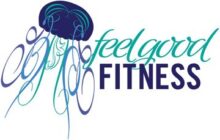After the body suffers trauma such as having a baby, an injury or surgery, it needs to heal itself again. Healing wounds takes a lot of work on the body and having good food and hydration can assist in the process.
There are 4 stages to the healing process, and we will have a brief look at them here:
- Haemostasis – In short this is when the body stops the bleeding by decreasing blood flow to the area. Platelets are then released to help clog the bleed and start the repairing process.
- Inflammation – At this stage antibodies, nutrients and white blood cells are taken to the injury site.
- Proliferation – This is the phase where new tissue starts to be formed. Having adequate oxygen and nutrients at this stage is important to achieve this.
- Maturation – This is the last phase of the wound healing and take months if not years to complete depending on the severity of the initial injury.
Ok so what does this have to do with food and exercise? There aren’t many people who haven’t sustained a soft tissue injury whilst exercising – pulled and torn muscles, tendons etc. Then there’s those more serious injuries (may not be sport and exercise related!) such as meniscus repairs, and then there is child birth. All are injuries to some degree.
Let’s have a look at the role nutrition plays. Starting with collagen. It is the main component of connective tissue and consists if amino acids, it’s name comes form the Greek Kólla meaning ‘glue’. Collagen is needed during the last phase of wound healing and so protein intake is important. The amino acid arginine increases the concentration of hydroxyproline which precursors collagen deposition and protein to the wound. It also has a role in increasing blood flow and in turn oxygen and nutrients to the site. Glutamine stimulates collagen production. Combined these amino acids make up 23% of a collagen molecule.
Bioflavonoids and anti-oxidants also play a role in that they are anti-inflammatory and help protect against oxidative and free radical damage.
Vitamins and minerals are also important. Copper for instance assists in producing soft tissue and helps with scar strength along with collagen.
Zinc again assists in collagen and protein synthesis and intern wound.
Vitamin C is needed to convert the amino acids lysine and proline into hydroxylysine used to produce collagen,
Vitamins A and E are needed again to assist in collagen synthesis and cross-linking. However, check with your doctor before taking vitamin A as those with conditions such as pregnancy should avoid too much.
Essential Fats provide energy and aid in the absorption of fat-soluble vitamins A,D,E and K
Now then let’s put it all together:
- Good sources of protein could include free range eggs, chicken, beef or fish. For vegetarians a wider variety of foods is needed to ensure you get all the essential amino acids from your proteins, these include pulses, nuts, seeds, beans and tofu.
- Sources of copper include almonds, asparagus and lentils. Zinc can be found in shellfish and wholegrains.
- Vitamin A foods include sweet potatoes, carrots and dark leafy green vegetables.
- Vitamin C can be found in strawberries, chillies, pepper and kale.
- Vitamin E is in avocados and butternut squash.
- For bioflavonoids and anti-oxidants sources include goji berries, cinnamon, aubergines and red onions.
A typical day’s meal then might look like this:
- Breakfast: glass of water, scrambled eggs, asparagus and smoked salmon
- Lunch: herbal tea, grilled chicken with kale and courgettes
- Dinner: Tofu chilli with chillies, brown rice, peppers and squash
- Snacks: handful of almonds or a berry smoothie

